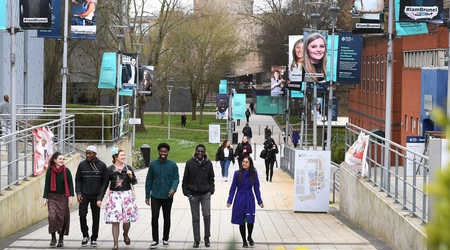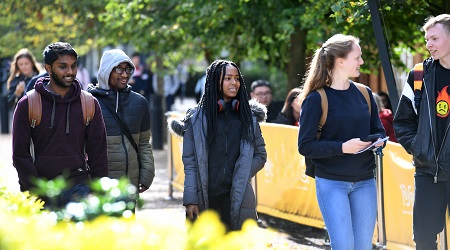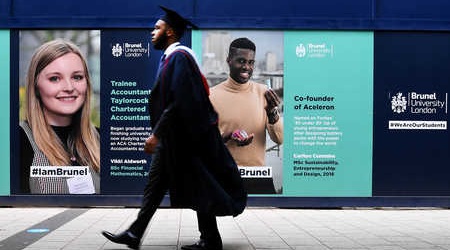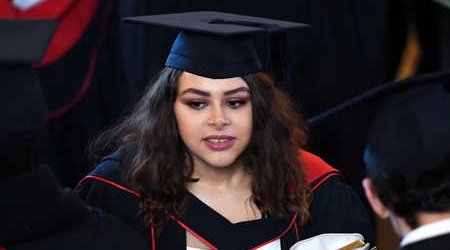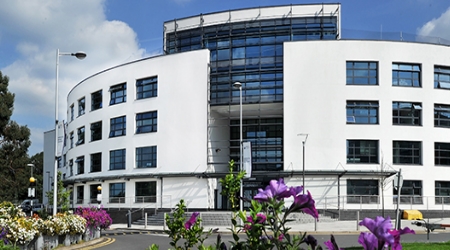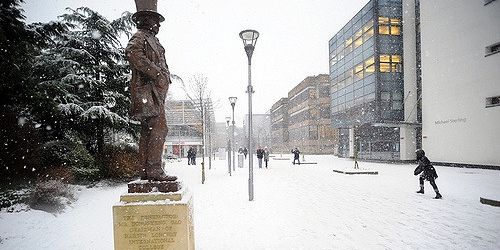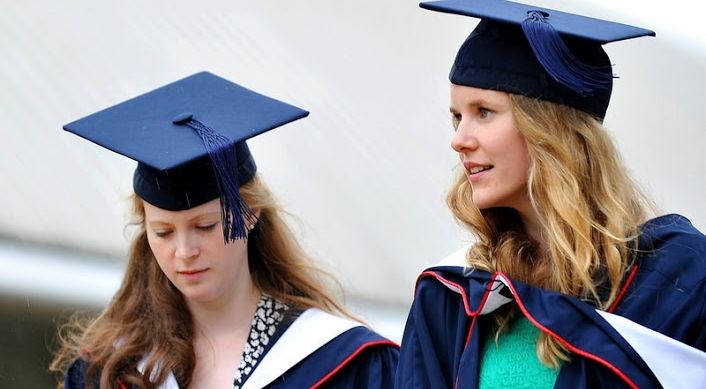International relations is an area of politics that largely focuses on how two or more nations interact with each other. As an introduction to the course you will study the evolution of international relations theory – for example how international relations relates to problems of anarchy, sovereignty, order, justice and solutions.
Early on in the course, you will have a choice between two topics: International Security which will look at the main concepts and models within the subject as well as its issues and policies, or International Political Economy which considers topics like globalisation, financial liberation and economic growth.
Once your knowledge, understanding and analytical skills have grown in international relations, you will choose a further two additional optional modules which cover democracy, migrant law, post-war world affairs, security in the middle east, and geopolitics. Finally, a research project of your choice under the guidance of a dissertation supervisor completes the course.
In keeping with the importance Brunel places on getting you ready for work, this degree includes the rare option of a work placement – 6-12 weeks of professional practice that takes place between May and September in an organisation with an international dimension to its mission.
Other opportunities to network and build knowledge include the option to take up membership with Chatham House, the leading British think tank on international affairs. Benefits include access to library and archive materials as well as regular events.
In fact, Brunel’s proximity to central London’s world-class research facilities, Westminster and Whitehall means you couldn’t be better placed to immerse yourself in an established political area.
Graduates of the International Relations MA, go to pursue careers in a wide range of organisations, including government, international institutions, non-governmental organisations, business, research institutes and security, or further study at doctoral level.
Careers and your future
Our students have had great success in seeking employment once they have completed their course. Many have come from, and then continue to work for, government agencies in the UK and abroad — we have taught police, military, and other government officials from the United States, Canada, Switzerland, Finland, Norway, Belgium, Turkey, Japan, Jordan, the Philippines, Brunei, Thailand, Indonesia, Korea, Botswana and several other nations beside.
Within the UK, students with no service experience have gone on to work for the British Security Service, the Metropolitan Police Counter-Terrorism Centres, the Serious Organised Crime Agency, and other departments of government. Many students have noted to us that the innovative studies they undertook on our programme were important topics of discussion in their interviews. Those already in Government employment have successfully used their MAs to leverage promotion or commissioning.
Students who have sought work in the private sector have likewise had success. Former MAISS students have gone to work for large banks conducting market analysis, to large oil-industry firms, to large consultancies such as McKinsey & Co, to specialist private analysis firms such as MS Risk and cyber security firm Digital Shadows.
